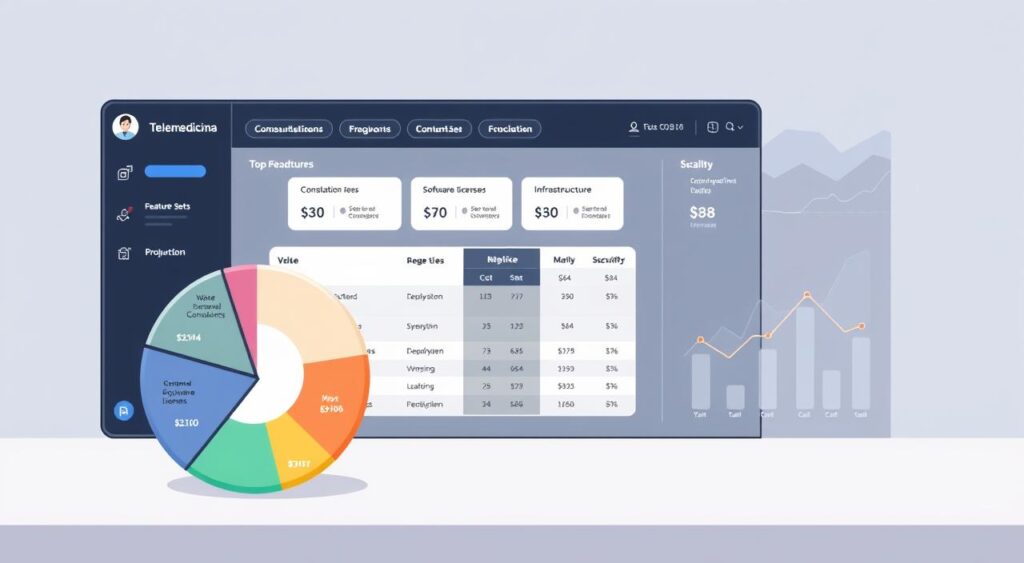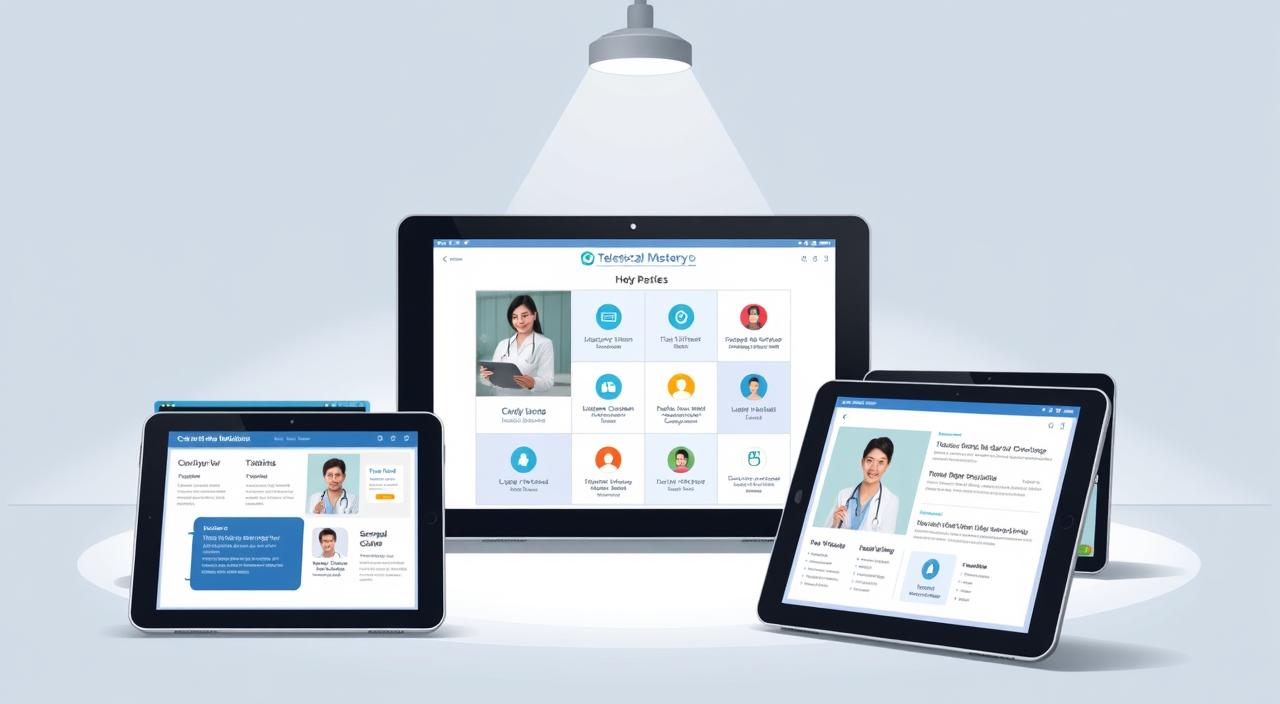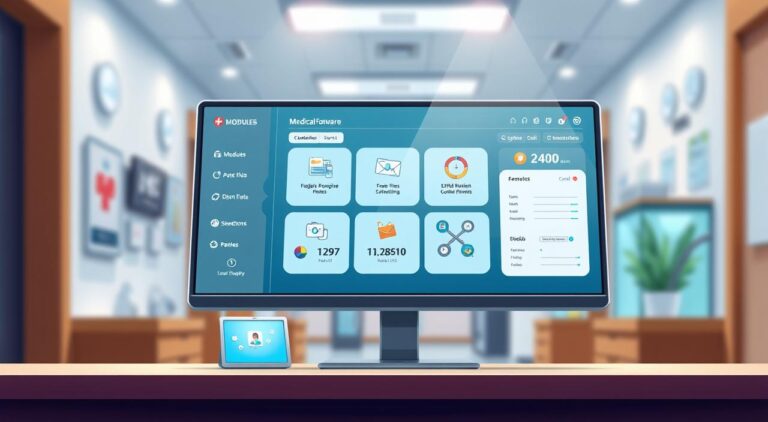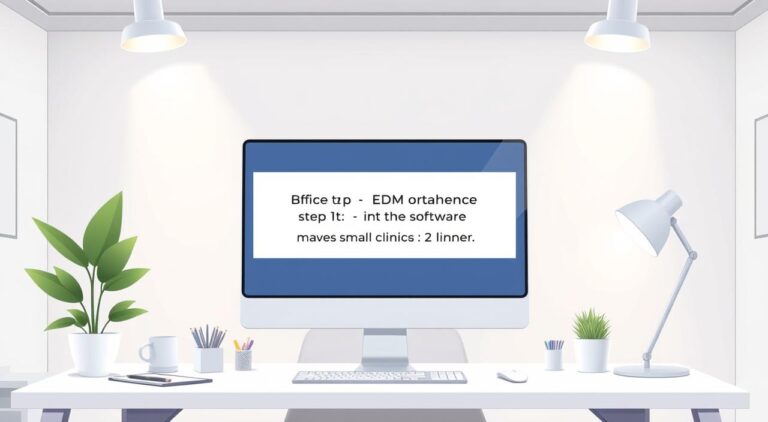Optimize Care: Telemedicine Platform Comparison
In today’s rapidly evolving healthcare landscape, telemedicine platforms emerge as essential tools for optimizing patient care. As providers face increasing pressures to manage administrative tasks and enhance patient engagement, these platforms offer effective healthcare CRM solutions designed to streamline operations while ensuring secure data handling. The comparison of various telemedicine platforms reveals their significant benefits, particularly for those seeking HIPAA compliant CRM tools for physicians in the US. Utilizing robust patient management tools, healthcare practitioners can improve communication, efficiently manage scheduling, and ultimately foster higher levels of patient satisfaction as they adapt to the ongoing demands of modern healthcare.
Key Takeaways
- Telemedicine platforms optimize patient care through enhanced communication.
- Equipment utilized must be HIPAA compliant for secure patient data handling.
- Efficient scheduling is crucial for improving patient management processes.
- Healthcare CRM solutions can streamline administrative tasks significantly.
- Increased patient engagement is a direct result of using telemedicine tools.
- Understanding the features of telemedicine platforms is essential for making informed decisions.
Benefits of Telemedicine Platforms
Telemedicine platforms offer numerous benefits of telemedicine that transform the way healthcare is delivered. One of the most notable telehealth advantages is the significant improvement in access to healthcare services, particularly in underserved or remote regions. Patients can now connect with healthcare providers from the comfort of their homes, effectively reducing travel time and costs associated with traditional visits.
Another key aspect is the enhanced efficiency in patient care. By streamlining appointment scheduling and minimizing wait times, practices are able to accommodate a larger number of patients. This efficiency not only leads to a better experience for patients but also alleviates administrative burdens for healthcare staff.
Additionally, the engagement between patients and providers greatly benefits from virtual consultations. This enhanced interaction fosters stronger relationships, encouraging patients to take an active role in their healthcare journey. Telemedicine platforms also include tools for remotely monitoring patient health, paving the way for proactive healthcare management.
Key Features to Consider When Comparing Platforms
When selecting the right telemedicine platform for your practice, understanding essential features is vital. Prioritizing the features of telemedicine platforms can significantly enhance patient care. Each platform offers unique functionalities, and identifying the must-haves can streamline operations and improve overall efficiency.
Essential Features for Effective CRM Tools
Effective healthcare CRM must-haves go beyond basic functionalities. Look for platforms that ensure secure data management, protecting patient information while adhering to regulations like HIPAA. A comprehensive platform should include:
- User-friendly scheduling systems that reduce appointment conflicts
- Seamless telehealth integration to facilitate virtual consultations
- Advanced analytics tools for monitoring patient interactions and outcomes
- Robust patient engagement tools for effective communication, including video consultations and messaging
- Interoperability with electronic health records (EHRs) for streamlined data flow
These components empower healthcare providers to deliver superior patient care, fostering stronger relationships and enhancing satisfaction rates.
Popular Telemedicine Providers
In the ever-evolving landscape of healthcare, several popular telemedicine providers have emerged as frontrunners, offering innovative services tailored for both healthcare professionals and patients. These providers excel in delivering efficient and comprehensive healthcare CRM solutions designed to streamline operations and improve patient interactions.
Onpipeline Healthcare CRM stands out with its advanced patient scheduling capabilities paired with robust practice management features. This platform allows healthcare providers to manage appointments seamlessly, ensuring both efficiency and enhanced patient satisfaction.
Leadsquared Healthcare CRM, another leader, takes the forefront in patient data management. Its ability to integrate health records fosters continuity of care, allowing practices to maintain a comprehensive view of patient history at all times.
Salesforce Health Cloud is recognized for its extensive customization options and powerful analytics tools. This platform empowers healthcare organizations to tailor their telehealth experiences to meet unique patient needs while leveraging data insights for informed decision-making.
For transformative patient communication, Zendesk for Healthcare provides innovative solutions that significantly enhance satisfaction levels. This platform simplifies interactions, ensuring that patient queries are addressed promptly and effectively, reflecting the essential role of physician relationship management tools in modern telehealth practices.
Cost Comparison of Telemedicine Platforms
Understanding telemedicine platform costs is essential for healthcare providers aiming to implement telehealth services efficiently. Costs can vary significantly based on the platform’s features, functionalities, and user capacity. On average, practices may see subscription fees between $50 and over $1000 monthly. This wide range highlights the importance of a thorough telehealth pricing comparison to identify options that suit specific needs.
For instance, some solutions like PatientPop offer premium tiers that include advanced features such as marketing campaigns and enhanced patient management capabilities. When exploring affordable healthcare CRM tools, practitioners should evaluate the pricing of medical CRM software alongside the functionalities included. Making informed comparisons ensures that practices select platforms which provide the best return on investment while meeting their operational requirements.

Evaluating Customer Support
Effective telemedicine customer support is crucial for the successful utilization of telehealth platforms. During the healthcare CRM support evaluation, it becomes essential to examine the level of customer assistance offered. Providers should prioritize options that include 24/7 support, comprehensive training materials, and reliable technical assistance. High-quality customer service not only enhances the user experience in telehealth but also significantly minimizes downtime when problems arise.
Choosing vendors that exhibit a commitment to client satisfaction is a smart strategy. Opting for platforms that provide proactive vendor assistance, along with regular updates, showcases their dedication to improving service quality. A robust support system can make all the difference in ensuring that healthcare professionals confidently navigate any challenges related to telemedicine services.
Reviews and Reputation
In the world of telemedicine, understanding platform reputation through user feedback is invaluable. The insights derived from telemedicine reviews can highlight a platform’s strengths and weaknesses, offering a deeper understanding of its reliability and effectiveness. Potential users should prioritize platforms that boast consistently positive ratings regarding their functionality, user-friendliness, and the quality of customer support.
Conducting a thorough platform reputation assessment often involves consulting trusted sources like KLAS Research and G2Crowd. These platforms provide comprehensive overviews of user experiences, which can assist healthcare professionals in making informed decisions. User feedback plays a critical role in shaping perceptions of a telemedicine platform’s value.
Furthermore, reviewing real-world cases of platform implementations helps to identify potential challenges and advantages. Understanding healthcare CRM ratings can provide additional context regarding the integration of telemedicine into practices, helping users to navigate the increasingly complex landscape of healthcare technology.

The Future of Telemedicine
The future of telemedicine holds immense potential as healthcare technology continues to evolve. Emerging telehealth trends suggest a strong shift towards the integration of artificial intelligence and data analytics, enabling healthcare providers to gain deeper insights into patient behaviors and preferences. These telemedicine advancements not only enhance the quality of care but also foster a more personalized approach, leveraging real-time data to tailor treatment plans.
Furthermore, increased regulatory support is expected to ease the implementation of telemedicine practices, facilitating broader acceptance within healthcare systems. This regulatory shift may significantly reduce administrative burdens, allowing providers to focus on patient care instead. The healthcare technology forecast indicates a future where telemedicine becomes an integral part of mainstream healthcare, characterized by improved connectivity and accessibility for patients and providers alike.
Making the Right Choice for Your Practice
In the ever-evolving healthcare landscape, choosing telemedicine solutions requires a nuanced approach tailored to the unique needs of your practice. It’s essential to evaluate your specific patient engagement needs, existing technology, and budget. By identifying these variables, healthcare providers can streamline their selection criteria for CRM tools and maximize the benefits of their telemedicine platform.
Engaging in thorough research is pivotal when navigating through various options. Providers should consider trial periods and demos to understand how different systems meet their operational requirements. Gathering feedback from peers who have experience with suitable platforms for healthcare providers further enriches the decision-making process, ensuring you are well-informed about both functionality and user experience.
Ultimately, adhering to best practices for healthcare CRM adoption significantly enhances the chances of a successful implementation. Aligning your chosen solution with both practice objectives and the evolving demands of healthcare will not only improve patient care but also contribute to operational efficiency. Your choice of a telemedicine solution could very well define the future success of your practice.






